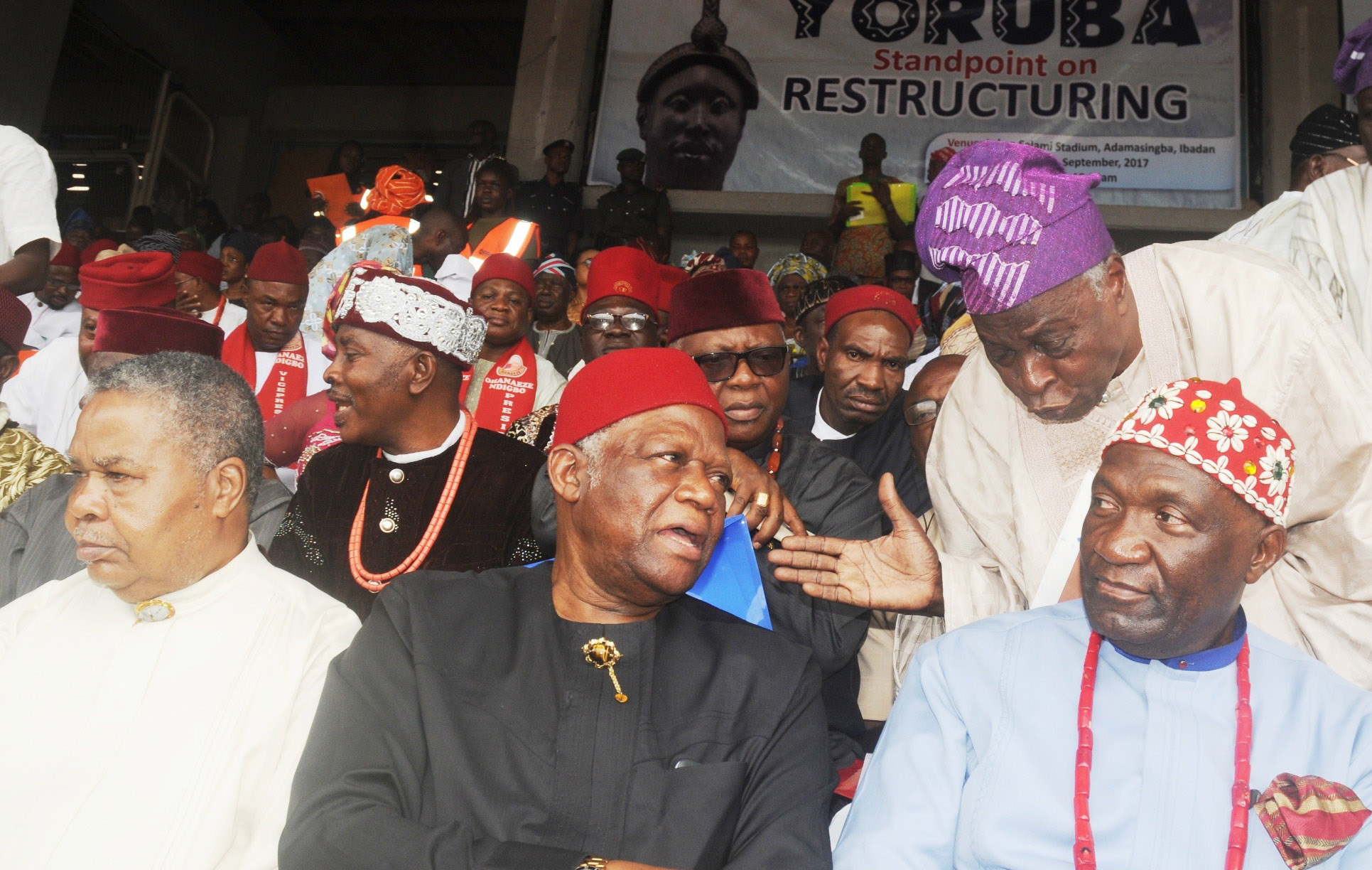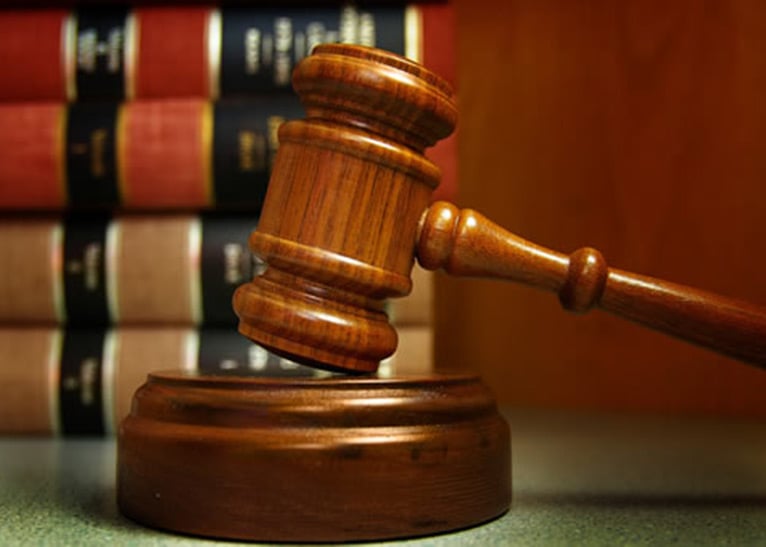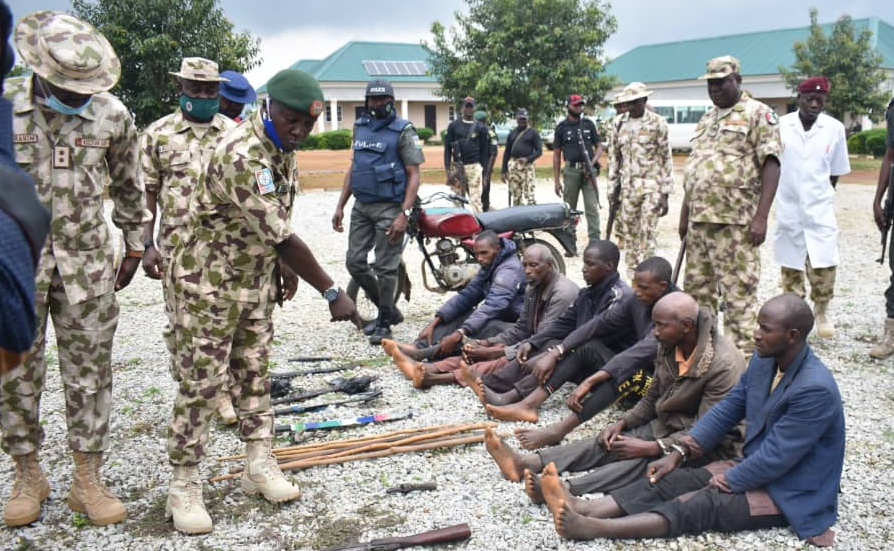No subject is off limits to a writer, however painful, personal or tragic. Sometimes, words are all the tools available to make sense of the human condition in all its various manifestations. Also, words themselves, as instruments of language frames narrative that could be just as damaging to the very human experience that it seeks to illuminate. The article by journalist, Adaobi Tricia Nwabuani in which she writes about her Nigerian great-grandfather as once a seller of slaves, is a rather unfortunate and indeed pernicious article. This is not because of the subject matter of the article but also because of the explanation offered that only serves as justification for the role that the author’s great-grandfather played in selling his fellow Africans as slaves. A version of this article had previously been published in the New Yorker (15 July 2018) and then on the BBC Website (19 July 2020).
The African slave trade is undoubtedly Africa’s greatest tragedy and its legacy not only continues to blight lives but also to define black identity both in Africa and the diaspora. Written from a personal perspective, the author seeks to present a middleman narrative of the slave trade. She writes: ‘My great-grandfather, Ogogo Oriaku, was what I prefer to call a businessman…He dealt in a number of goods, including tobacco and palm produce. He also sold human beings.’ Notice the seeming legitimisation and the reductionism of a business that included trading in human lives alongside other commodities such as tobacco, as though they are transactional equivalents. It is the classic reductionism in which human beings are reduced in value and equated with something as needlessly instrumental as tobacco. She goes on to describe as well as to excuse a process that facilitated the supply of the slaves to foreign traders by local agents, pointing out that ‘it would be unfair to judge a 19th Century man by 21st Century principles.’
There are many things wrong with this assertion. The first is the idea that 19th and 21st Century moral principles are incomparable or even incompatible and to make such comparisons would be unfair. But this is a fallacy. The principles that govern moral conduct are not historically but sociologically determined, particularly when it comes to the dehumanization of other human beings through the process of enslavement. In much the same way that murder was morally wrong in the 19th Century so it is morally wrong in the 21st Century. Time does negate, mitigate or militate against certain vices neither does it differentiates in terms of the standard of moral assessment. But crucially, all the slave traders were fully aware that they were engaged in a morally reprehensible business, only that they sought ways to ameliorate or to turn a blind eye to that activity by invoking spurious legitimisation schemes, such as the inferiority or sub-humanity of the slave. There is no way in which the trade in tobacco could be thought to be equivalent to the trade in human beings – a thinking, feeling, soulful and embodied being cut from the same cloth of humanity as the trader versus an object of mere past time like tobacco.
The universally acknowledged moral maxim of do unto others how you would like to be done, was already part of the cultural ethos of Africans, even before the arrival of the Europeans as no one, including our author’s great-grandfather would have relished being treated as a commodity. What is therefore ‘unfair’ is not the attempt to look at 19th century conduct through the lens of 21st Century standards, but rather the assertion that both moral principles are incommensurate, thereby excusing 19th century atrocities.
Advertisement
We should also remember that in the early parts of the 19th Century there emerged anti-slavery movements opposed the trade in human beings and worked tirelessly towards its demise. Opposition to the slave trade was based on principles that are not dissimilar to the same principles and standards that are applicable today. There was a moral divide: there were those on the side of trade in slaves – many of whom were fully aware that the practice was wrong and others who were equally determined to stop it, principally because it was wrong. The moral principles that govern as well as sanction the trade in slaves remain the same today as it ever was.
Nwabuani goes on to claim that ‘Assessing the people of Africa’s past by today’s standards would compel us to cast majority of our heroes as villains, denying us the right to fully celebrate anyone who was not influenced by Western ideology.’ The problem here is that heroes and villains are socially constructed or invented figures and even when memorialized in statutes of stones do not have their reputation fixed by nature. Society casts its heroes through an amalgamation of myths, half-truths, perceptions and also through what that society wishes to believe about its past. Subsequently, an individual could be both a hero to some and a villain to others. But when new revelations come to light about our heroes, we revise of their status as heroes and not hold fast to that a heroism that has been built on presumptions, rather than continue to sing the praises, particularly of those that have contributed to the brutalization of other human beings, upon the fact that they were once regarded as heroes. In the current global climate, when historical racism has come under scrutiny, it is also right and proper that we reassess the actions of some of these historical figures. Why would or should it be right that the statute of imperialist Cecil Rhodes at Oriel College, Oxford and King Leopold of Belgium in Brussels are being reassessed and in some cases pulled down, but the reputation of Africa’s slave merchants remain untouchably sacrosanct?
Nwabuani further claims that ‘Igbo traders like my great-grandfather did not suffer any crises of social acceptance or legality. They did not need any religious or scientific justifications for their actions. They were simply living the life into which they were raised. That was all they knew.’ The world they knew? Does this imply that they knew no better than to sell off their fellow Africans as slaves or that they had no choice in the matter?
Advertisement
But they did have a choice in the matter: a choice between good and evil to which they were not entirely ignorant or blind. What she means is that the trade in slaves was socially accepted and indeed acceptable – the norm – and African slave merchants were untroubled by a social or moral conscience, because very few existed. But this is precisely same argument that British and American slave traders relied upon to justify slavery. They enshrined slavery in law and through practice the activity became a social norm. But what Nwaubani fails to mention or to realize is that the slave trade was facilitated, and maintained by overwhelming force of violence and any justification that relies upon some notion of ‘social acceptance’ is rendered facile by the very violent basis upon which it was instituted and sustained. The idea here is analogous to the claim that colonial masters suffered no ‘crises of acceptance or legality’, about colonialism, but this is only because they made the rules and regulations that governed the colonial operation. Which is precisely what racial subjugation was all about: the denial of freedom to the other by use of the violence of force.
Nwaubani then rounds off this part of her article by suggesting that the trade in slaves ‘was all they [people like her great-grandfather] knew.’ That was all they knew? This cannot be right. They knew more than to trade in human beings and they knew the trade to be wrong. Indeed, by her own account African slave merchants knew to sell other commodities: tobacco, palm oil, spices and others, to farm and to husband animals. Therefore to claim that all they knew was to sell slaves is tantamount to denying Africans any autonomous agency, either in moral consideration or intellectual capability since the suggestion here revolves around the notion that they just didn’t know any better. They knew better and had a choice in the matter.
If the white man’s excuse was that the African was sub-human and fit only for slavery; what was the excuse of the African slave merchant? The fact is that the trade in slaves, particularly by African merchants, was motivated by greed and small financial gains, which blinded them to the suffering of their own people. Whereas there was something legitimate and noble about the trade in precious and essential commodities, there was something ignoble about their trade in their fellow human beings and any attempt to excuse or exonerate their actions does great disservice to the endeavour to come to terms with all aspects of the slavery and the role that each party played in its facilitation.
Mwaubani then writes that ‘the most popular story I’ve heard about my great-grandfather was how he successfully confronted officials of the British colonial government after they seized some of his slaves.’ This is one of the most spine-chilling lines in the piece, written with a hint of pride and even relish with words like, ‘popular, ‘successful’ used as badges of honour. However, is it not sad and tragically ironic that an African slaver is portrayed in glowing light as ‘successfully’ mounting a challenge on a foreign (Imperial) power’s attempt to stop an African selling his fellow Africans – members of same community and even clan – to the foreign power? This is the very idea of a man selling one’s soul to the devil, – worse than the efforts of Dr Faust – the unconscionable high point not only of the profanation but the destruction of the sanctity of human life. This then, is rather a thing of shame than of pride, a worst kind of betrayal for a piece of silver since the crime is committed against one’s own kind. This was classically Judas’s crime, not that he betrayed Christ but that he sold him for 30 pieces of silver – a life, a great life for pieces of coins. Why then should white slave traders be condemned while black slave traders are exonerated? To what moral standards should both be differently held? To treat both unequally is to compound rather than redress this monumental historical wrong.
Advertisement
It is difficult to acknowledge ancestral guilt but history demands that we seek the truth not only to power but to set the record straight and in context, which is where a discussion such as this need to framed in terms of a mea culpa or apologia. But the article does neither, instead it appears to revel in the past misdeeds of an ancestor in the attempt to glorify, defend, exonerate, justify or legitimise those actions, which will do nothing to advance our understanding of the slave trade and the need to come to terms with the role that Africans played in the brutalisation and dehumanisation of their fellow Africans. Nwaubani’s ancestral home stands partly as a legacy of the slave trade, yet there are families who have no home to speak off as a result of the devastation of the activities of people like Ogogo Oriaku. In the case what Nwaubani should be doing is writing about reparation, recompense, redemption and reconciliation rather than about how great a business man her great-grandfather, the African slave trader was. We cannot be held to account for the sins of our forefathers, but we can make amends even reparations, as we demand today of white slave owners.
Apata is a researcher based in London.
1 comments








When I read the earlier story, I was repulsed at the effrontery and callousness. Your article has assuaged my thoughts. THANK YOU.